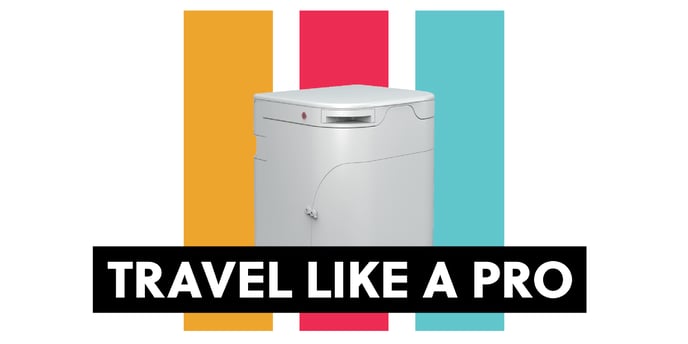Can the OGO™ ORIGIN Be Installed in a Wet Bath
Yes—but you’ll need the right strategy to keep it dry, safe, and ventilated.
If you live in a van, boat, or tiny home, your wet bath is probably your only bathroom space—a compact area where the toilet and shower share the same zone. So naturally, the question comes up:
Can you install the OGO™ ORIGIN in a wet bath?
Yes, you can. And many customers do.
But it’s not drop-and-go. You’ll need to account for moisture management, ventilation, and airflow—because your compost system relies on all three.

What You Need to Know First
The OGO™ ORIGIN is not fully waterproof. While the external casing is durable and splash-resistant, continuous water exposure—especially underneath the unit—can cause:
-
Moisture entering through mounting holes or the motor compartment
-
Electrical issues from standing water pooling beneath the base
-
Reduced compost performance due to airflow disruption or excess humidity
That said, with a few small modifications, your OGO™ will work beautifully—even in a shower zone.
Wet Bath Installation Best Practices
1. Use the OGO™ Wet Bath Cover
When showering, protect the top of the unit with our custom-fit wet bath cover. It allows you to:
-
Keep the power cable and vent hose connected at all times
-
Shield the seat and electronics from splashes
-
Remove easily for daily use
2. Elevate the Unit Off the Shower Pan
Raising the toilet prevents water pooling beneath it—a common issue in wet bath floors. Use:
-
A lip or waterproof riser
-
A bamboo or slatted shower mat
-
A custom-cut marine platform
Even a 1” lift makes a major difference in preventing damage to the motor or wiring.
Why Ventilation and Airflow Are Critical
Your OGO™ uses an internal fan that runs 24/7 to maintain airflow across the solids bin. This:
-
Reduces internal moisture
-
Keeps your compost mixture oxygenated and dry
-
Prevents odors before they start
In a wet bath—where humidity is naturally higher—you must ensure the fan has somewhere to push that air.
You Have Two Venting Options:
A. Vent Hose Out the Wall or Ceiling
This is the standard method—run your included hose to a wall or roof port to allow continuous airflow.
B. Use a Charcoal Filter Inside the Vent Housing
For stealth setups or fully enclosed bathrooms, a charcoal filter can be inserted into the fan housing. It filters air internally without requiring an external outlet. It won’t offer the same moisture reduction as a hose, but it works well for occasional showers or when space is tight.
Field-Tested, Road-Proven
We tested the OGO™ ORIGIN in a 2022 Thor Conversion Van using only a charcoal filter and no vent hose. The toilet was freestanding, not mounted, and used during a road trip around the Great Lakes.
Result?
It worked flawlessly. No smell. No overflow. No water damage. Just smart use and a little planning.
Extra Tips for Success
-
Never trap the fan—it needs airflow to move moisture out
-
Avoid sealing the unit to the floor—leave room to lift and check for dampness
-
Clean your wet bath floor regularly and let it dry fully between showers
-
Use marine-grade silicone to seal wiring holes if needed
Final Word
Yes, the OGO™ ORIGIN works in wet baths—and people around the world are making it happen every day.
The key is this: protect it from water below, cover it from water above, and always prioritize ventilation.
Moisture out. Air in. Compost clean.
Need help planning your wet bath install, choosing a fan setup, or ordering accessories? We’ve got your back. Just reach out.
